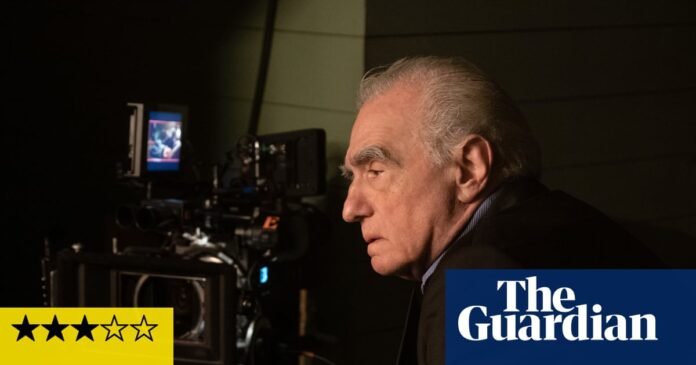The world is not short on documentaries about Martin Scorsese. Those wanting to see his inspirations and methodology can already seek out 1995’s A Personal Journey With Martin Scorsese Through American Movies, 2004’s Scorsese on Scorsese or any of the endless biographies compiled by fans on YouTube.
But all of these are incomplete, either frozen in time at a midpoint in Scorsese’s career or lacking direct input from the man himself. Rebecca Miller’s sprawling Apple TV documentary Mr Scorsese is an attempt to correct that. If it isn’t entirely successful, it’s because five hours is nowhere near enough time to do justice to the man’s multitudes.
The project does feel somewhat necessary. The Scorsese of 2025 has a cast-iron reputation. He is perhaps the greatest film-maker in the history of the medium. He is lauded and respectable, a pillar of the monied establishment. What Mr Scorsese does well is remind you this was not always the case.
Pointedly, in interviews conducted by Miller, Scorsese is keen to remind the world that he spent most of his life as the ultimate outsider. A sickly kid who was born in Queens, New York near the street where the mob would dump their dead bodies, he was riddled with asthma and had to watch the world through his third-storey window, only escaping to air-conditioned cinemas that would alleviate his symptoms.
Throughout his life he was, as he puts it, ostracised time and time again. Ostracised from his neighbourhood after a family dispute. Ostracised by his own peers for making (in the words of John Cassavetes) a “piece of shit” in Roger Corman’s Boxcar Bertha. Ostracised by his religion for making The Last Temptation of Christ. Ostracised by Hollywood after the twin flops of Kundun and Bringing Out the Dead. Ostracised by his own body after he was hospitalised, blood pouring from every orifice, when his gargantuan drug intake caught up with him in his 30s. And yet, every time he was knocked down, his talent and determination helped him find his way back.
The series doesn’t shy away from any of these downfalls. There’s a sequence on The Last Temptation of Christ that is particularly shocking, with nuns appearing on TV to tell the audience that buying a ticket represents a mortal sin, and antisemitic protests outside the home of the studio head Lew Wasserman.
No wonder there are so many stories about Scorsese’s volcanic temper. We’re reminded of times that he flipped desks, smashed phones and destroyed rooms whenever anybody dared to stand in the way of his vision. Mercifully, this seems to have calmed now. Towards the end of the series it seems like a combination of tangible success, domestic happiness and the realities of acting as a carer for his wife have softened the edges of a man who at times seemed frighteningly uncompromising.
But Mr Scorsese also attempts to reinforce the director’s place within the industry. Steven Spielberg is interviewed at length, and Ari Aster proves to be as adept at deconstructing Scorsese’s films as Scorsese is with the films that inspired him. Perhaps the biggest get is Daniel Day-Lewis, who gives an uncharacteristically charming and unguarded interview about his two projects with Scorsese. Obviously the fact he is married to Rebecca Miller probably helped with access, but his participation is an undoubted highlight.
Nevertheless, despite its extended runtime, something about Mr Scorsese still feels frustratingly slight. Perhaps it’s that the series noticeably loses density as his career wears on. The first few episodes are rich and packed with information, but we’re still stuck in the 1990s by the end of the fourth episode. That leaves just a single hour to clatter through a quarter-century of his work, during which he made nine films, and a quarter of that is given over to Gangs of New York. Hugo – his 2011 attempt at a family 3D film – doesn’t even warrant a mention.
His vital work restoring and preserving lost classics with the Film Foundation and the World Cinema Foundation, his work as a documentarian, his choice to champion exciting new voices as a producer – any one of which could sustain half the length of Mr Scorsese alone – are all brushed away in the sprint to the finish line. In other words, the definitive Martin Scorsese documentary remains unmade. But if you have a love of film and five spare hours, you could do much worse.




